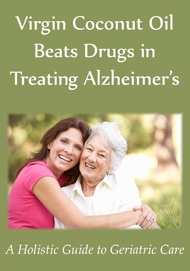How FDA Guidelines On The Adverse Effects Of Statins Are Very Telling
by Dr John Briffa
for The Cholesterol Truth
Excerpts:
The Food and Drug Administration in the US is responsible for making decisions about which drugs should be licensed. It also keeps a database of information regarding the adverse effects of drugs, and occasionally revises the warnings issued with prescription medication. On the 28th of February, the FDA issued new guidelines regarding the management of individuals taking statins. You can read these guidelines here. The FDA, in its new guidelines, also draws our attention to the evidence which links statin use with impaired blood sugar control. The new guidelines warn doctors and patients alike about this. It adds, though, that: “[the] FDA continues to believe that the cardiovascular benefits of statins outweigh these small increased risks.”
Just to remind ourselves, many individuals need to take statins for several years for one to avoid having a heart attack. What this means, is that the vast majority of people who take statins will not benefit from them at all. Also, the majority of people who take statins are essentially healthy (no history of, say, heart disease or stroke). In these people, statins do not reduce overall risk of death over time. What this means is that for the great majority of people, taking statins will not extend their life by a single day. The new guidelines issued by the FDA only serve, I think, to remind us that the risk/benefit ratio of statins is not so stacked in favour of ‘benefit’ as we have been led to believe.
Read the Full Article and Comment Here: http://www.thecholesteroltruth.com/how-fda-guidelines-on-the-adverse-effects-of
See Also: Coconut Oil and Alzheimer’s: The Low-fat Diet and Cholesterol Lowering Drugs Part of the Problem?
Virgin Coconut Oil Beats Drugs in Treating Alzheimer’s
A Holistic Guide to Geriatric Care – eBook
In this book we look at the problems and causes of Alzheimer’s as they are related to an epidemic of prescription drugs being marketed to seniors, and we look at the strong evidence for dietary intervention, starting with coconut oil.
We bring you the stories of 10 different families who saw Alzheimer’s lessened or reversed by adding coconut oil to their diet, which is representative of thousands of others who are experiencing similar results. We offer guidelines on usage and types of coconut oil to consider, as well as other non-drug tips for holistic geriatric care.
Our target audience is the millions of caregivers out there loving caring for our senior population who will find it difficult to get this information from their doctors or medical professionals not trained in these areas.






 HHS Secretary Kennedy Breaks His Promise: "War on Saturated Fat" Kept in Tact with New U.S. Dietary Guidelines
HHS Secretary Kennedy Breaks His Promise: "War on Saturated Fat" Kept in Tact with New U.S. Dietary Guidelines Research Continues to Show Virgin Coconut Oil's Effectiveness in Treating Cancer
Research Continues to Show Virgin Coconut Oil's Effectiveness in Treating Cancer Coconut Oil Continues to Benefit Alzheimer's Patients over Drugs as Studies Continue for Neurological Benefits
Coconut Oil Continues to Benefit Alzheimer's Patients over Drugs as Studies Continue for Neurological Benefits How the Simple High-Fat Low-Carb Ketogenic Diet Continues to Change People's Lives
How the Simple High-Fat Low-Carb Ketogenic Diet Continues to Change People's Lives New Studies Continue to Show that Coconut Oil is the Best Oil for Treating Skin Conditions and Maintaining Healthy Skin and Teeth
New Studies Continue to Show that Coconut Oil is the Best Oil for Treating Skin Conditions and Maintaining Healthy Skin and Teeth